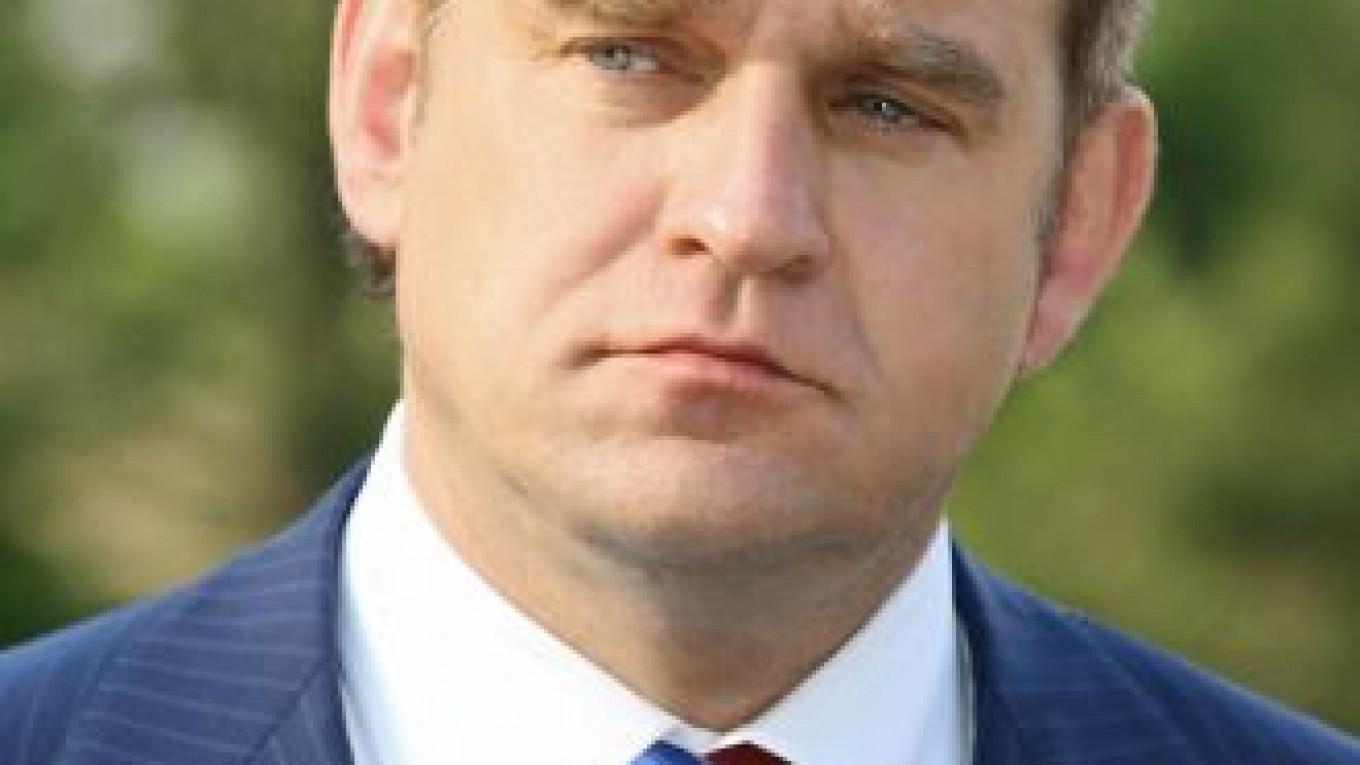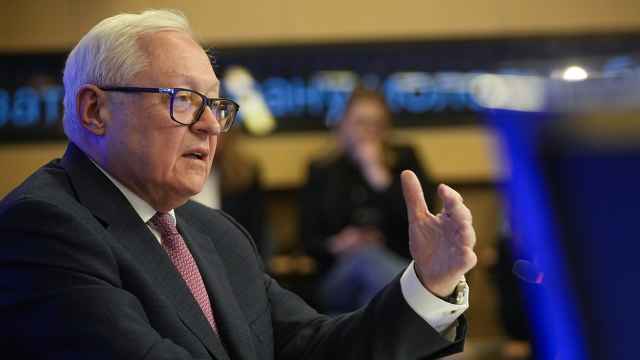Unpopular Primorye Governor Sergei Darkin was removed from his post Tuesday, the same day the State Duma voted return to gubernatorial elections and ease registration for political parties.
Darkin was replaced on an interim basis by Vladimir Miklushevsky, a former deputy education minister and the rector of Far East Federal University.
Although Darkin’s departure was officially referred to as a voluntary resignation, experts said it appeared to be the firing of an unpopular governor.
Mikhail Tersky, head of the Pacific Center for Strategic Development think tank, said Darkin was not able to attract foreign investment and facilitate business growth in the region, which is expected to host the 2012 Asia-Pacific Economic Cooperation summit, RIA-Novosti reported.
In 2007, Darkin was publicly humiliated during a call-in show with Prime Minister Vladimir Putin. A local businessman accused Darkin and members of his team of “lining their pockets” and asked Putin how soon Darkin would be fired. Putin responded that he would take the situation into account.
Shortly before the announcement of Darkin’s resignation, the Duma passed the first reading of a set of proposals that would reduce the Kremlin’s role in local government.
The Duma session was attended by representatives of opposition parties not represented in the legislative body, among them Yabloko leader Sergei Mitrokhin, Left Front head Sergei Udaltsov and opposition leader Vladimir Ryzhkov.
All of them are expected to benefit from the legislation, which could seriously shake up the current political system.
The move may signal serious changes to current election laws by Putin, who is likely to win the presidency in March.
Putin, who took pride in abolishing gubernatorial elections in 2004, has indicated that he would like to keep some leverage on the process, and he supports a “presidential filter” permitting the removal of elected governors by executives.
This sentiment is shared by many in Putin’s United Russia party, whose members said they fear criminals taking control in the regions.
“I am for the gubernatorial elections, but I support the filter idea. We all remember the 1990s,” Nikolai Valuyev, a former boxing champion and a United Russia deputy, told The Moscow Times on Tuesday.
But while the reforms were supported by both the ruling United Russia party and opposition lawmakers, Speaker Sergei Naryshkin said the Duma would conduct the second reading only after the election.
The legislation states parties have to consult with the president about their nominees, a measure seen as a filter.
With President Dmitry Medvedev’s time in office running out, opposition deputies representing three Duma factions appealed to him in a letter Tuesday not to appoint any new governors before the new legislation could be enacted.
The letter, signed by deputies from the nationalist Liberal Democratic Party, A Just Russia and the Communist Party, urged Medvedev not to appoint governors using a system that “brings your legal authority to a minimum.”
The letter was published by senior Just Russia Deputy Gennady Gudkov on his Twitter feed.
It was made public soon after Darkin submitted his resignation to Medvedev.
Under the proposed reforms, governors could serve only two five-year terms and could be removed by the president if corruption or an unresolved conflict of interests were proven in court.
Vladimir Semago, a former member of United Russia’s Duma faction, said it’s too early to say what will become of the reform plans.
“This legislation might die, or United Russia will send it for a review after the presidential election,” Semago said.
While the legislation is supported by opposition parties, they expressed reservations over its language.
“It is a poor attempt to get back to free elections,” Gudkov told reporters Tuesday.
Gudkov said the presidential amendments preclude a runoff, meaning a candidate could be elected without a majority of the vote.
Communist Party Deputy Alexander Yushenko called the legislation “still raw.”
Another provision in the legislation would allow a party with only 500 members to register on the regional level.
Limitations in the current law have proved to be a divisive issue between existing and nonregistered opposition parties. Parties with less than 40,000 members cannot be registered as the law stands now.
Gudkov said he believes that the eligibility requirement needs to be higher than 500.
Experts, though, said the new rules might put existing parties in jeopardy, since members might start leaving them.
Just Russia Deputy Igor Zotov said Tuesday that he might pull his Party of Pensioners out of A Just Russia.
Senior United Russia Deputy Sergei Neverov played on those fears and called on opposition deputies to consider their future.
“You are afraid that you would need to stop playing a broken record,” he said, addressing Communist leader Gennady Zyuganov.
Addressing Ryzhkov and Mitrokhin, both members of nonregistered parties, Neverov said, “Look at the parliament seats for yourselves. But I would advise you not take the center. It is occupied.”
He was referring to United Russia, which represents itself as moderate.
But Neverov’s words were belied by the fact that Putin has shown preference for the All-Russia People’s Front in his re-election bid at United Russia’s expense.
The party might see many of its members leave if new parties are created.
Its only hope is that the proposed reforms would not be long-lived after a Putin victory, Semago said.
He said Putin does not intend to implement serious political reforms while the economic situation is stable enough thanks to high-energy prices.
“He has the sad example of [Mikhail] Gorbachev and [Nikita] Khrushchev in front of his eyes,” Semago said.
Both reform-minded Soviet leaders were forced out of power by their political rivals.
A Message from The Moscow Times:
Dear readers,
We are facing unprecedented challenges. Russia's Prosecutor General's Office has designated The Moscow Times as an "undesirable" organization, criminalizing our work and putting our staff at risk of prosecution. This follows our earlier unjust labeling as a "foreign agent."
These actions are direct attempts to silence independent journalism in Russia. The authorities claim our work "discredits the decisions of the Russian leadership." We see things differently: we strive to provide accurate, unbiased reporting on Russia.
We, the journalists of The Moscow Times, refuse to be silenced. But to continue our work, we need your help.
Your support, no matter how small, makes a world of difference. If you can, please support us monthly starting from just $2. It's quick to set up, and every contribution makes a significant impact.
By supporting The Moscow Times, you're defending open, independent journalism in the face of repression. Thank you for standing with us.
Remind me later.






